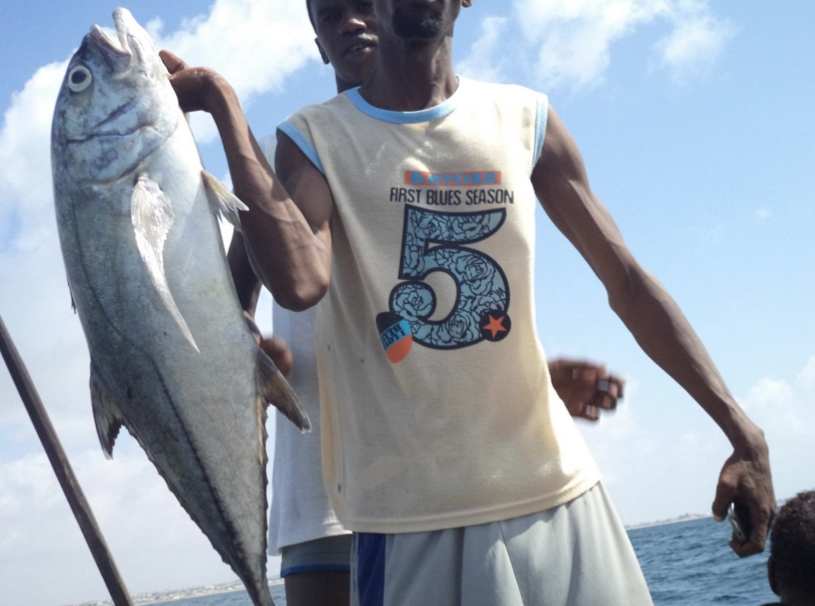The Fisheries Project
In Somalia, unemployment and a lack of livelihood opportunities are endemic. The nearly two decades of conflict in Somalia destroyed infrastructure, social systems, and created a generation of Somali youth who are struggling to find their place. Young people are the biggest demographic group in Somalia, representing the largest percentage of the population. The cycle of marginalized youth and violence is a threat to lasting peace in Somalia and the region, and to young people themselves.
Economic recovery of the scale necessary for Somalia means rebuilding entire value chains and infrastructure, developing domestic and international markets for goods. One of these markets is fishing, harnessing the rich marine resources available off Somalia’s coast.
Fisheries in Kismayo
Although formerly a thriving city, the southern city of Kismayo has suffered more than twenty years of conflict and instability. Now, we’re working with Somalis who are slowly returning to Kismayo, as well as people affected by the decades long conflict to build a livelihood opportunities through a local resource – fish.
Focusing mainly on returnees coming back from Dadaab refugee camp in Kenya, the overarching goal of the project is to build a sustainable fishery sector in Kismayo that is capable of self-growth, export, and significant job creation – all things dependent on investment in infrastructure, provision of equipment and training on skill sets. That’s where we come in.
This past year, we established a boat repair workshop, used to both rejuvenate boats while training program participants on boat making and repair skills. We also worked to create market demand for the product through events and radio broadcasts, promoting the benefits of fish as food and as a livelihood opportunity.
We supplied the boat repair workshops with the tools and equipment they need for operation. This equipment covers all aspects of the industry, including engines, nets, fishing poles, and more.
Participants in the project were taught how to use fishing equipment, process and preserve fish, market their product, run a small business, and how best to save their income. For a select group of entrepreneurs, capital and financial training was provided to start up their own businesses, kick-starting economic activities.
These interventions have been critical to the Kismayo community, where the livelihood of project participants have markedly improved. The project has had immense support from local, district, and provincial levels of administration and the people of Kismayo. It is our hope that we will be able to scale the project, attract more returnees to the city, and provide durable solutions for returnees, helping them recover and rebuild their lives.
